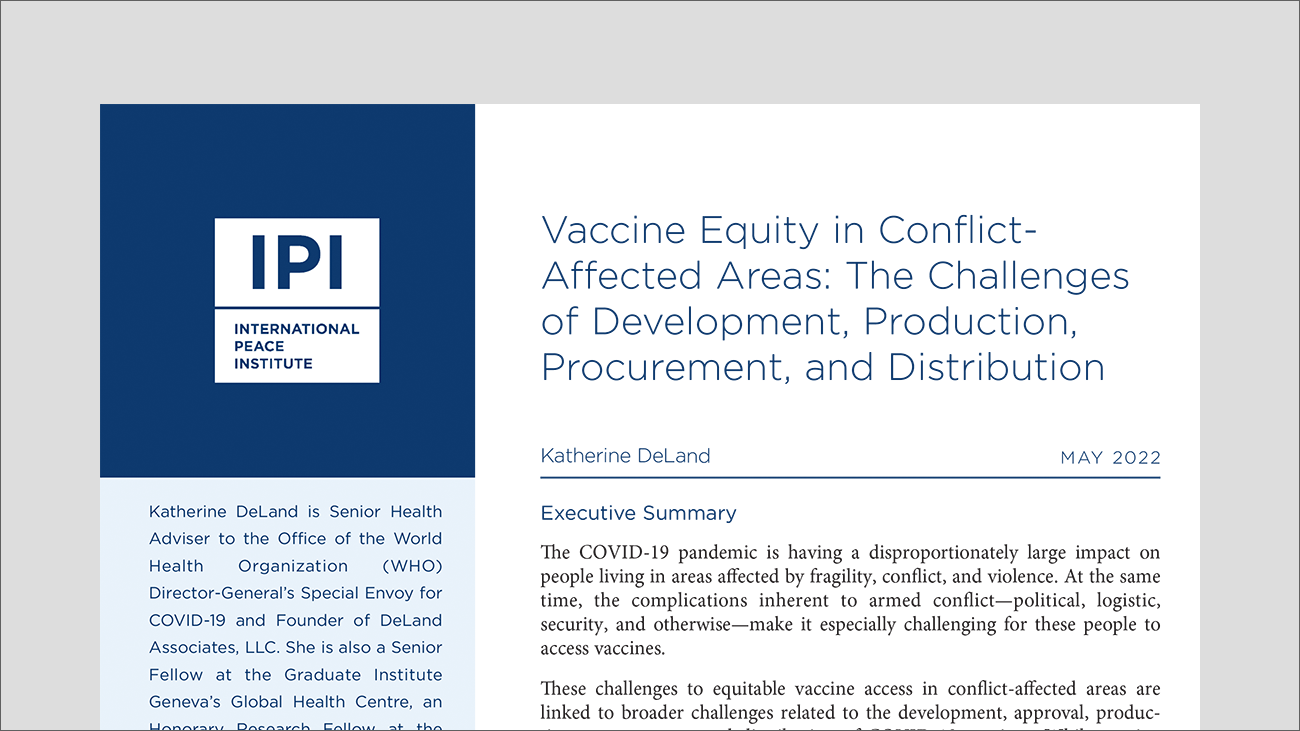
While the wide-ranging impacts of COVID-19 are being felt in all countries and communities, the pandemic is having a disproportionately large impact on vulnerable populations, such as people living in areas affected by fragility, conflict, and violence. Vaccines hold enormous promise to mitigate these impacts, but the complications inherent to armed conflict make accessing vaccines especially challenging. Even when countries do receive vaccines, they often face challenges in rolling out vaccination programs, whether because they lack adequate capacity or because the doses are set to expire or are not acceptable to the communities set to receive them.
This issue brief focuses on the challenges of equitably distributing COVID-19 vaccines to populations in conflict-affected areas. It begins by looking at general issues related to the development, approval, production, procurement, and distribution of vaccines. It then examines the particular challenges to distributing vaccines in conflict-affected areas both before and during the vaccine rollout.
The report concludes with several recommendations for stakeholders and policymakers to improve the delivery of vaccines in conflict-affected areas:
- Redistribute global resources to increase the supply of vaccines to conflict-affected countries;
- Increase the transparency and predictability of global vaccine supplies;
- Enhance cooperation and coordination at the national and local levels to deliver vaccines to conflict-affected areas through existing humanitarian response mechanisms; and
- Ensure that vaccination campaigns in conflict-affected areas adhere to humanitarian principles.







